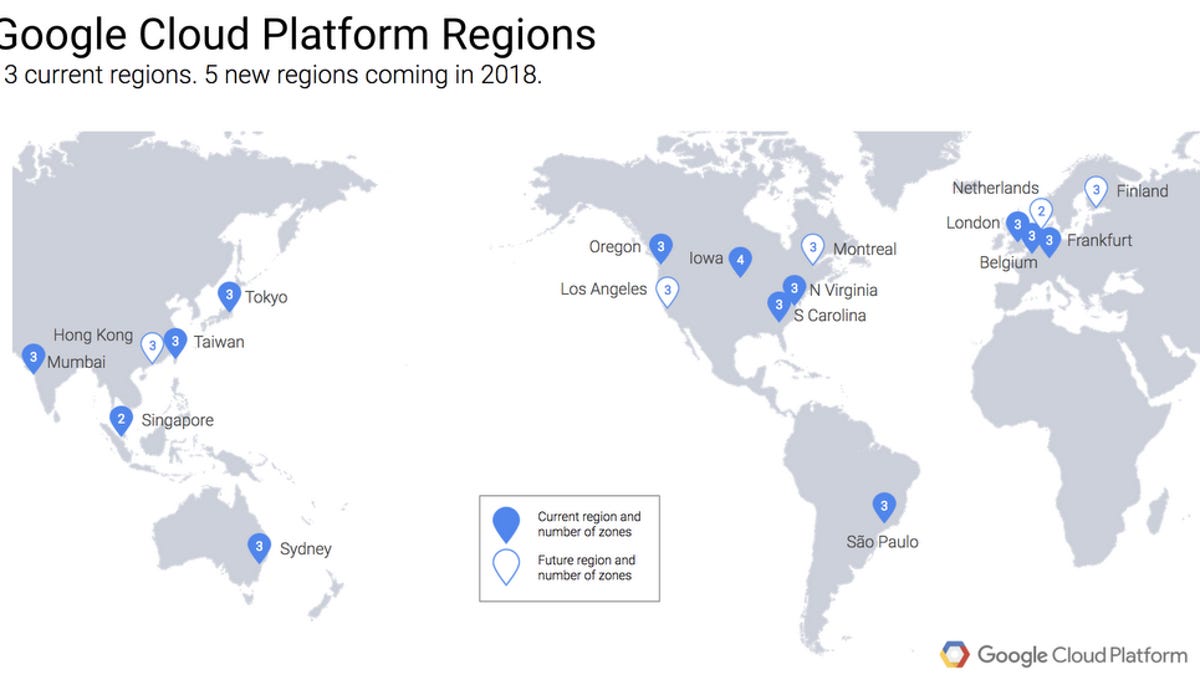Google expands network with new data centers, subsea cables
Google will build five new regional data centers in 2018 and three subsea cables in 2019 to further grow its worldwide network.

Google will expand its worldwide network to 18 regions where it has one or more data centers in 2018.
Google is expanding its existing cloud network with new data centers this year and new subsea cables in 2019, the search giant said Tuesday in a blog post.
It will add data centers to five regions in 2018, including Montreal and the Netherlands in the first quarter, followed by Los Angeles, Finland and Hong Kong later in the year. This brings its worldwide total to 18 regions on five continents.
The subsea cables -- named Curie, Havfrue and the Hong Kong-Guam Cable system (HK-G) -- will further improve Google's already sprawling network across the globe:
- Curie will be a private cable connecting Chile to Los Angeles.
- Havfrue will be a consortium cable, part-owned by Facebook, connecting the US to Denmark via Ireland.
- HK-G will be a consortium cable interconnecting major subsea communication hubs in Asia.
Google's new investments in subsea cables will expand its network to Chile, Asia Pacific and across the Atlantic Ocean.
These ventures increase Google's investments in subsea cables to 11 that it directly owns, in addition to numerous others that it leases.
Google's network has fiber optic links and subsea cables between more than 100 points, more than 7,500 edge node locations, more than 90 Cloud CDN locations, 47 dedicated interconnect locations and 15 GCP regions. Google said its network delivers up to 25 percent of the world's internet traffic.

